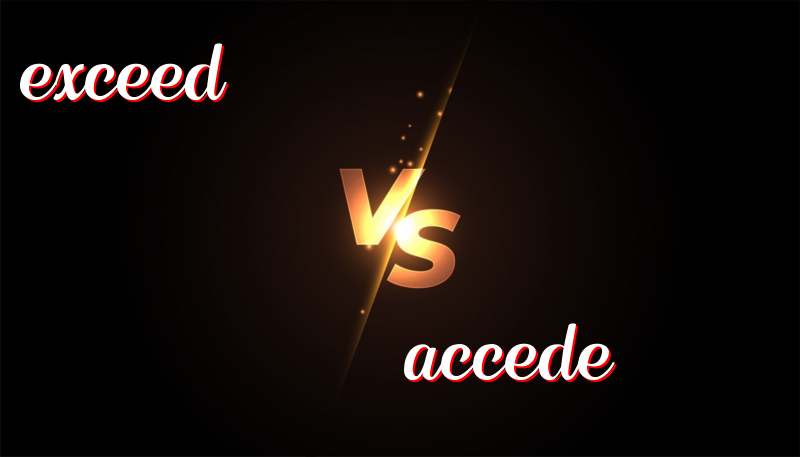Speed Limits and Royal Seats: Exceed vs. Accede Explained
Understanding “Exceed” vs. “Accede”
Sometimes, words in English can sound the same but have different meanings. Two such words are “exceed” and “accede.” Let’s learn about these words, their history, how to use them, and how to remember their differences.
History of the Words
The word “exceed” comes from Latin “excedere”, which means “go beyond.” “Accede” also has Latin roots, coming from “accedere,” meaning “to approach or agree.”
How to Use “Exceed”
“Exceed” is a verb. It means to go beyond a limit or to be more than something.
- “The car should not exceed the speed limit.”
- “If you study hard, you can exceed your own expectations.”
- “The rain will exceed last year’s record.”
- “The shop’s profits exceed last month’s sales.”
- “He hopes to exceed the top score in the game.”
How to Use “Accede”
“Accede” is also a verb. It means to agree to something or to take on a position of power.
- “She decided to accede to the new rules.”
- “He will accede to the manager’s request.”
- “The king acceded to the throne after his father.”
- “They acceded after much discussion.”
- “His family hopes he will accede to their wishes.”
Trick to Remember the Difference
A way to remember the difference is:
- “Exceed” often deals with amounts or limits. Think of “extra” to remember it means “more.”
- “Accede” is about agreeing or taking a position, like someone “accepting” a role.
Summary
While “exceed” and “accede” sound similar, they mean different things. “Exceed” means to go beyond limits. “Accede” means to agree or take a position. Remembering these tips can help you use them correctly in sentences.

Leave a Reply
You must be logged in to post a comment.